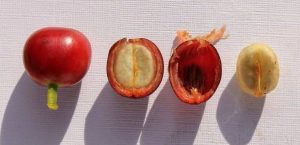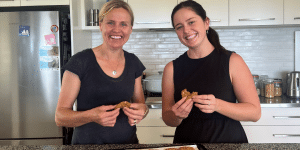Processed Meats and the link to Cancer

Last month’s announcement is significant. It comes from the International Agency for Research on Cancer (IARC) – a group of international experts who scrutinise the overall evidence – in this case more than 800 studies – on how likely certain things are to cause cancer. Their decisions carry a lot of clout, especially with governments and regulators.
Bowel cancer is of great interest – as it’s the second most diagnosed cancer in Australia (after prostate – followed by breast cancer, melanoma and lung cancer.
First, let’s clear up some definitions. What are ‘red’ and ‘processed’ meat?
- ‘Red’ meat is (as you might expect), any meat that’s a dark red colour before it’s cooked – meats like beef and lamb, but also pork.
- ‘Processed’ meat is meat that’s not sold fresh, but instead has been cured, salted, smoked, or otherwise preserved in some way – things like bacon, sausages, hot dogs, ham, salami, and pepperoni.
Both of these types of meat are distinct from ‘white’ meats, like fresh chicken or turkey, and fish (neither of which appear to increase your risk of cancer).
A key finding from the WCRF analysis is that red meat and processed meat aren’t equally harmful: processed meat is more strongly linked to bowel cancer than red meat.
The results showed that those who ate the most processed meat had around a 17 per cent higher risk of developing bowel cancer, compared to those who ate the least.
How does red and processed meat cause cancer?
Researchers are still trying to pin down exactly how red and processed meat cause cells to become cancerous, but the main culprits seem to be certain chemicals found in the meat itself.
Processed meat has been classified as a ‘definite’ cause of cancer (or Group 1 carcinogen) – the same group that includes smoking and alcohol.
And red meat is a ‘probable’ cause of cancer (or a Group 2a carcinogen) – the same group as shift work.
Learn More: The positive impact of exercise on people with cancer

Red meat still has a place in a healthy diet. These findings don’t suggest we should stop eating red meat. It just means eating less if you are a big meat eater.
Changes to diet and exercise have been estimated to reduce the incidence of bowel cancer by 75%.
- Physical activity reduces the risk of bowel cancer
- Dietary fibre protects against bowel cancer (10% decreased risk per 10g/day)
Take home message:
- Have smaller portions of lean red meat (65-100grams), 3-4 times/week
- Avoid having processed meats regularly – such as hot dogs, salami, sausage, bacon
- Avoid sedentary activities such as watching television
- Include high fibre foods such as: vegetables, fruit, wholegrains and legumes (such as: chickpeas, kidney beans, lentils)
- Studies show garlic, milk (9% decreased risk per 200g/day), and calcium (22% decreased risk for groups with the highest calcium intakes – dietary and supplemental sources) probably protect against bowel cancer
So our advice on diet stays the same: eat a diet high in fruits and vegetables and wholegrain cereals — with a moderate amount of lean red meat. Combine this with regular exercise and limit your alcohol intake.
See your GP if you have any symptoms of bowel cancer:
- Bleeding
- A persistent (beyond 2 weeks) change in bowel habit
- Abdominal pain
- Unexplained tiredness/weight loss
- Lump/mass in abdomen






